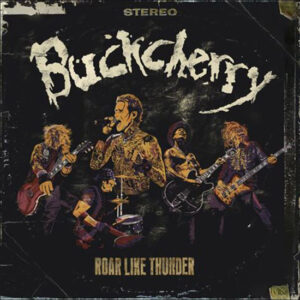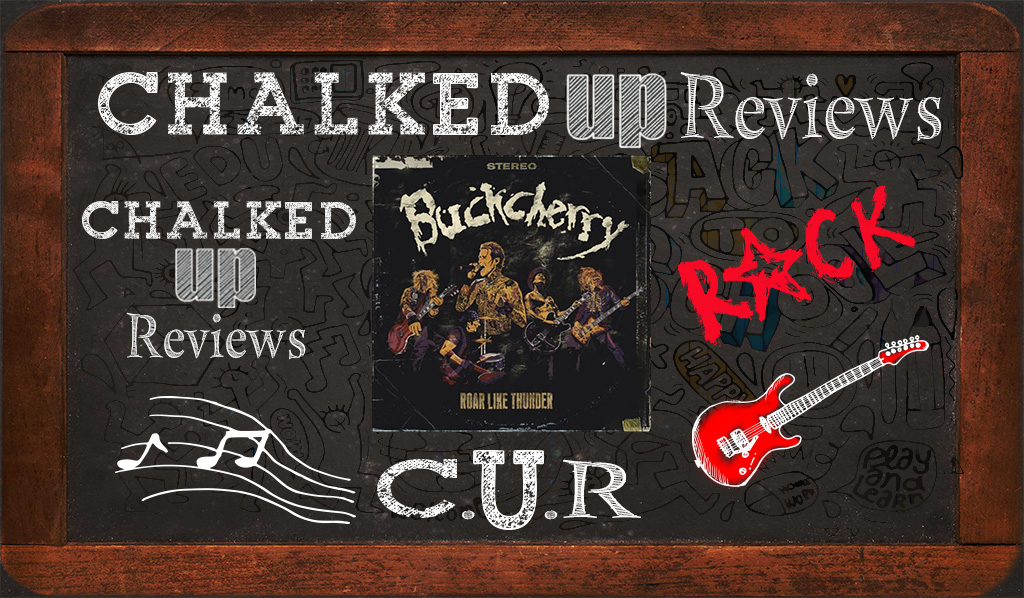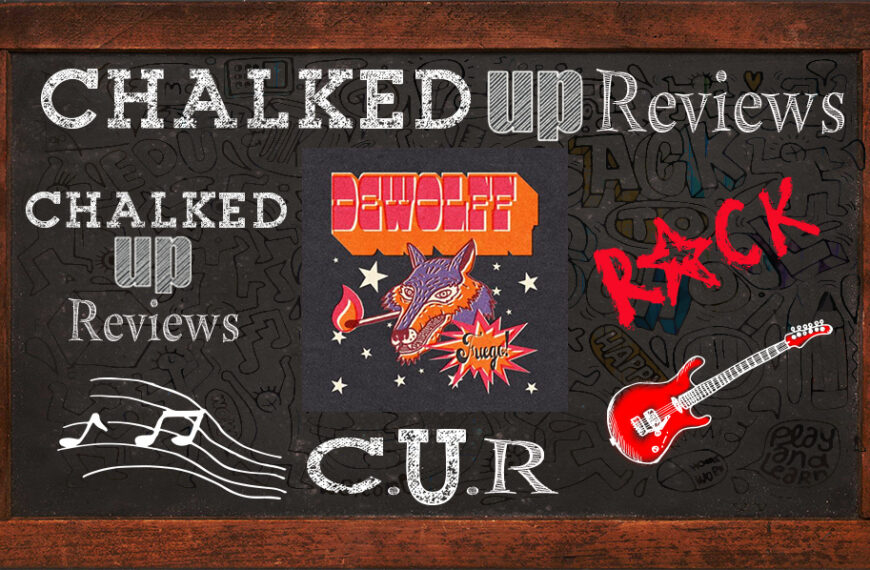
Buckcherry returns with a Roar Like Thunder. This is a set of ten snarling, riff-slinging songs that punches in hard and doesn’t let up. But what elevates it beyond just another rowdy entry in the hard rock canon is the chemistry and performances from each member of the band. Everyone brings serious fire to the table, and that chemistry, instrument layering, the tone choices, and the collective timing are what give the album its staying power.
The twin guitar attack on Roar Like Thunder is a wall of tone layering and rhythmic unity. Stevie D., the band’s longtime axe-slinger, handles much of the melodic lift, those leads that sit right between blues-rock and 80s shred, while Billy Rowe brings the crunch and the muscle. Their riffs on “Roar Like Thunder” and “Come On” are examples of how to make guitars punch without overloading the mix. The bends in “When The Sun Goes Down” add tension, while “Talkin’ ‘Bout Sex” shows off their glam side, complete with textured guitar parts and a sense of play between the sections.
Rowe’s funkier rhythm work on “Blackout” is worth spotlighting as he leans into a clean strum and a slow descending slide part for punctuation that keeps the modern energy. And on “Set It Free,” both guitarists have distinct parts that sync up for a rising energy that’s simple but effective.
Todd is the linchpin, no question. His delivery across the record is gritty, urgent, and laser-focused. What sets him apart is tone and control. On “I Go Boom,” he shifts timbre mid-verse to ride the groove, keeping the vocal phrasing tight and responsive to the pocket. “Hello Goodbye” lets him show his shape-shifting ability: it’s still unmistakably Todd, but more restrained, shaped to fit the moody guitar landscape.
His diction is clear, and more importantly, his melodic instincts shine through even when he’s in full snarl mode. “Machine Gun” is a prime example as he doesn’t just yell the title phrase; he phrases it rhythmically to echo the stuttered energy of the guitar, tying the parts together. That kind of musicality is often overlooked in rock vocalists, but it’s key to Buckcherry’s cohesion.
Too often in hard rock, the bass gets buried. Not here. LeMieux’s work is locked tight with the drums but has just enough flair to give the songs contour. In “Blackout,” the bass riff runs parallel to the main guitar hook, anchoring the groove with grit and drive. His phrasing in “Come On” gives the verses an elastic bounce that complements the more straight-ahead guitar work. There’s also subtle harmonic support on “Hello Goodbye,” where his note choices echo the guitars as he holds the fort down.
He’s not flashy, but he is foundational, and his tone, with just a hint of midrange growl, cuts beautifully through the mix.
Ruiz brings an old-school approach to pocket and swing that gives this record its legs. “When The Sun Goes Down” opens with a killer tom pattern, setting a mood that’s both tribal and ominous. On “I Go Boom,” his quarter-note pulse drives the song, with fills that build tension without ever stepping on the groove.
The snare crack on “Let It Burn” is pure fire—it’s not just a sound, it’s a statement. And on “Set It Free,” his hi-hat work and subtle ghost notes add a finesse that rewards repeated listens. Ruiz is the type of drummer who knows exactly when to go big and when to lay back, and that sense of timing keeps the record from feeling one-dimensional.
Roar Like Thunder is less about surprises and more about execution. Buckcherry nails the appeal of Hard Rock’s energy. Every player knows their role, and they bring attitude, precision, and undeniable chemistry to every track. For gearheads, tone nerds, and anyone who wants to hear a band firing on all cylinders, this record thunders.


